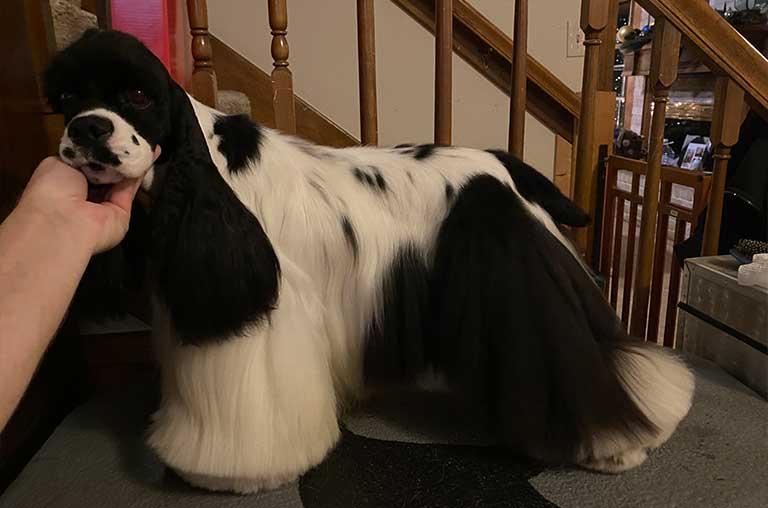Cocker Spaniels are very friendly and playful dogs. They are known for their intelligence, loyalty, and friendliness. They are also known for being susceptible to many diseases, such as demodectic mange, ringworm, and ticks. In this article, we will discuss the external dog parasites in cocker spaniels; fleas, ticks, lice, mites that can infect your Cocker Spaniel and how to prevent them.
What are External Parasites affecting cocker spaniels?
If you have ever owned a cocker spaniel, you know how easily they can get external parasites. The most common external parasites are fleas, ticks, mites, and worms. These parasites can cause a variety of problems for your dog, including skin irritation, loss of appetite, diarrhea, and more. External parasites are most found on the skin and fur of your dog, so it is important that you remove them as soon as you see them.
How Do External Parasites Attack Your Cocker Spaniel?
In this post, we describe how external parasites, including fleas, ticks, lice and worms, can affect your dog. We also discuss how to treat your dog for external parasites and how to prevent them from returning.
External dog parasites in cocker spaniels; fleas, ticks, lice, mites and worms, can cause serious health problems in dogs. These parasites can be contracted by your dog through the environment, and if left untreated, they can spread to other pets in the home. Here are some of the most common external parasites that can affect your dog.
External parasites can cause a wide variety of health problems in dogs. Some of the most common ones include:
- Fleas: Fleas are small, blood-sucking insects that live on the surface of your dog’s skin. They feed on the blood of your dog, which causes the dog’s skin to become itchy. The flea bites may also leave a red mark. These lead to major skin problems for Cocker Spaniels, as their sensitive skin can easily become irritated or infected from frequent scratching and biting.

- Ticks: Ticks are small arachnids that can transmit disease-causing bacteria and viruses to your dog. If you notice that your dog is scratching, licking or chewing at his skin, this could be a sign of a tick infestation.
- Lice: Lice are small, wingless insects that can cause itching and hair loss. They live on the surface of your dog’s skin and can be contracted from contact with another animal or by sharing an area with an infected animal.
- Worms: Worms are small, round parasites that live in your dog’s intestines. The most common type is roundworm.
- Praying Mantis: A praying mantis is a large insect with a long, thin body and two pairs of wings. It is usually black in color and has a long, sharp beak. It is commonly found in gardens and on plants.
How Do You Prevent External Parasites?
There are several ways to prevent these external parasites from spreading to your dog. One way is to keep your dog clean and groomed. You should wash his coat with shampoo every week. Your dog also needs to be checked regularly for fleas.
If you notice that your dog is scratching, licking, or chewing at his ear and skin, this could be a sign of a flea infestation. You can also use an insecticide spray or flea collar to kill the fleas on your dog. Also, take good care of your ear
Another way to prevent these external parasites from spreading is to keep your dog away from other animals. If you do notice any fleas on your dog, check out our blog on how to stop fleas on Cocker Spaniel dogs and take the necessary measures. Either way, you can take him to the vet for treatment.
What Should You Do If You Find an External Parasite on Your Dog?
One of the most important things is to wash your dog’s bedding and towels often. Make sure you wash them with soap and water. If you have a cat, you should also wash it with soap and water. Wash your dog’s toys and bowls often.

If you notice that your dog has an external parasite, don’t hesitate to take him to the vet. You should take care of your dog’s health, especially ear’s health. Don’t let your dog stay outside in the rain or snow for long periods of time. If you don’t, he will get wet and cold. This is one of the reasons why parasites can live in your dog.
Conclusion
In conclusion, the external dog parasites in cocker spaniels; fleas, ticks, lice, mites that can infect your Cocker Spaniel are very similar to those that can infect your cat. However, there are some differences. For example, the external parasites that can infect your Cocker Spaniel will be found in the skin, fur, and eyes. The most common ones that you should be concerned about are fleas, ticks, and mites. You should wash your dog with a gentle shampoo that won’t harm the skin of your dog. You should also make sure that your dog gets plenty of exercise, as this will help to keep him healthy.
The best way to remove parasites from your dog is by using a quality flea and tick collar that has proven to be effective in the past. The first step to getting rid of parasites is to make sure that you are not infested with them yourself. This can be done by having a thorough check of your pet’s body, including the belly, paws as well as cleaning your cocker spaniel’s ears regularly. You should also have your dog checked for ticks.

My sweet cocker, Linus went to the 🌈Rainbow Bridge on June 27. It was completely unexpected. Of my other cockers one died of old age &the other passed away from a synovial cancer of his right back leg. . My younger sister &I are both widows &live together. W e already miss Linus beyond words. Linus was a parti-color, white with red to a faided buff on his ears, tail, & a couple of patches of the red to buff areas as well as feckles. Linus had the most loving caring dog out of the three cockers I have lived &cared for for the past 40+years. Needless to say we are looking for another cocker just like Linus. We are hoping to get her one at the adoption prices as we are 2 old senior citizens on a fixed income. Any help you can assist us with will be appreciated. Thank You